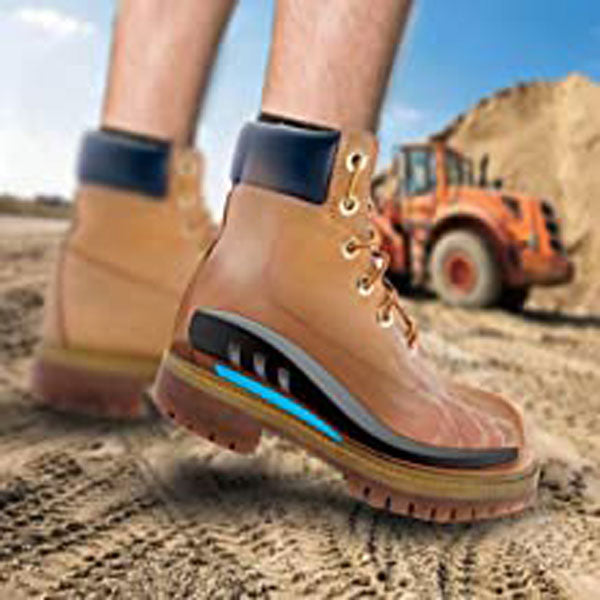Are you thinking of getting a construction job? Here’s what you need to know about the construction industry, the skills you need, and how to move up the ranks in your construction career.
Construction work as a career.
Construction jobs encompass many different tasks in a multitude of environments. You'll need to be able to navigate tight spaces and handle dangerous heights. You'll handle different types of equipment, often in unfavorable weather conditions.
If you're looking for a rewarding career and love hard work, construction may be the place for you. A willingness to learn and follow safety standards will help you get far in this field. Add a mix of technical knowledge, physical endurance, and effective communication skills, and your construction career will grow.
There is a growing need for construction workers. The construction industry fuels the country's economy. Each project provides jobs and brings new life into a community while creating the infrastructure that's critical to helping the country move forward.
You'll feel a sense of satisfaction when you build structures that people depend upon. It could be a new hospital, movie theater, theme park, ball field, school, or even a home.
Construction work is visually progressive. At the end of every day, you can see just how much you and your team have accomplished. Watching your project come to completion day by day is one of the most rewarding parts of a construction career.
If you enjoy new, interesting challenges, you’ll find construction work stimulating. Each project brings its own needs and expectations. In many cases, each new project looks different than the others. You'll avoid the 9 to 5 job stagnation that leads to burnout.
If you love being part of a team and finding solutions as a team, you'll love the moments of collaboration it takes to fix problems on the job site. In construction, everyone depends on everyone else to get the job done. Even when some have challenging personalities, you'll all get it done together.
Advancement in the construction industry.

Your career path in this field is all up to you. Your skills make it happen. Work hard, observe what your seniors in the industry do, and learn along the way.
Entry-level construction work requires no specific educational requirements. You can start as an unskilled worker and learn the basics before taking on a specific skill with continued education or on the job training.
You're not limited in the construction field. You can specialize in one area, such as carpentry, stonework, surfacing, engineering, or even IT. If you're willing to get the training, there's a place for you to really shine.
Sometimes the training is all on the job, and you can advance just by doing your best and learning through time. If you pay attention to detail, take pride in your work, and always aim to deliver great results, you'll find getting the positions you want much easier.
Skills and traits that will help you get the construction career you want.

Be dependable.
Arrive on time every day. Project managers will take notice, and being late will affect your chances of moving up the ranks. Significant delays with project completion due to tardiness will result in unhappy clients.
Be safety-minded.
Never cut corners on any task you take on. Make sure you fully understand how to use any power tools before you use them. Look out for your own safety and for the other workers on the job site.
Be fit and in shape.
Construction work is demanding. You'll need considerable strength and stamina to carry out many of the duties required on the job site. Nearly 50% of all jobs require heavy lifting, requiring proper posture and form.
Take care of your eyes and coordination.
You'll need to be able to see well enough to read documents, examine details near and far, and see the gauges and dials on the equipment. You'll be sitting, lying, and standing for long hours. You must be able to move your limbs quickly and accurately on any surface and during various weather conditions.
Learn about the technology and building processes.
The more you know, the better. Inadequate training and inexperience with the types of work you need can end your career.
Become familiar with the materials and tools needed for many project types.
Consider specializing in one or two areas. This can increase your value as an employee, bringing you opportunities for bigger offers and better job positions.
Some skills you may find useful to study for career success include:
- Masonry - Education is available through courses or apprenticeship programs.
- Surveying - Online degree programs are available, although being licensed will require an apprenticeship.
- Ironwork - Wiring, handling power tools, rigging, operating a crane, shearing, and welding are valuable skills here.
- Plumbing or HVAC - A working knowledge is useful, but becoming a licensed professional makes you extremely valuable.
- Demolition - Many employers like demolition experts with a post-secondary certificate, vocational school training, or bachelor's degree.
- Building and repair of structures.
- Building and repair of highways and bridges.
- Renovations - If you come with experience in drywall repair, sheetrock, door frames, and other skills such as window installation, this adds value to your position on the construction team.
- Framing - Building code knowledge and being able to be incredibly accurate in measuring, cutting, and shaping building materials will make you a sought-after framer.
- Roofing - If you’re safety-minded and come with experience in roofing, you can excel in roofing for your company.
- Building materials knowledge - By studying building materials, you help make the best decisions on the job for sustainability, reliability, and optimum problem-solving.
- Using power tools - Not just using the power tools but acquiring your own as a professional puts you in high demand. Companies may fight to get you.
- Knowledge of heavy equipment - Become a valuable asset by learning how to operate all the heavy equipment needed on various job sites.

Keep your reading and math skills up to date.
You may think working in construction won't take any education, and that's just not correct. A good construction worker will need a working knowledge of math, algebra, and geometry for calculations, measuring, and making necessary adjustments. You'll need to be able to read documents and blueprints.
Be independent and self-sufficient.
There is a high demand for construction workers who can recall important details, processes, and procedures without having to be reminded every time the same task comes up.
Practice good communication skills.
Nearly half of all construction reworks can be attributed to a breakdown in communication on the job site. Ensuring a job well done and impressing the boss will take being able to communicate questions, directions, and decisions. It's important to be able to communicate in person as well as with emails, reports, and documentation.
Adapt to technical advancements.
Over half of the construction companies have research and development departments for new technology.
- Augmented reality: A solid understanding of this technology's capabilities and use cases helps win more projects, empower team collaboration, enhance safety, provide training, and avoid construction errors.
- Virtual reality: This technology is often combined with augmented reality for a mixed reality experience, so you can see and interact with the elements.
- Building information modeling: BIM utilizes various design tools and methods to make every phase of construction efficient, safe, and cost-effective.
- Drones: Use these to generate 3D maps of your worksite with a few clicks, increase security surveillance, inspect structures, and more.
- Mobile apps: Construction apps are common in today's construction industry and help manage construction projects with greater efficiency.
- Construction management software: Specialized software assists in getting the right information to the right people on the project, besides keeping track of costs and schedules.
Be proactive.
When you have a willingness to learn the new methods, tools, and techniques that simplify tasks and save costs, you'll be more likely to get considered for promotions.
Be a problem solver.
Problems happen. Obstacles, project delays, bad measurements, and more occur at every job site. Workers who can help solve these issues quickly and make sure a project stays on track are valuable assets to a team. Maintaining safe working conditions take construction workers who can make quick decisions and think quickly to provide solutions.
Be a time saver.
Organized workers with project organization skills are highly sought after. If you make effective use of your schedule to get the job done and avoid time-wasting tasks, you'll be noticed and rewarded.
Be a team player.
The ability to collaborate with others by communicating well and working in tandem with your co-workers will take you far. You'll help motivate your team and make sure the project is completed as planned. With experience and ability to coordinate with others, you could elevate to become a project manager.
Use your customer service skills.
As you move up the ranks of construction work, the expectations of dealing with clients increase. Honing your people skills will help you manage client questions, concerns, and complaints with the least amount of friction and help foster client satisfaction.
Wear the best in safety footwear.
Don't let a preventable accident put you out of work for weeks or longer. Wear steel toe, non-slip, as required for each project. Protect your feet from the hazards of falling objects, punctures, burns, slippage, and much more with Indestructible Shoes.









